Syngenta Battles Insurers in Paraquat Legal Showdown
The legal confrontation between Syngenta and its insurers over the contentious Paraquat lawsuits marks a critical juncture in agricultural jurisprudence. As the number of plaintiffs alleging harm from Paraquat exposure swells, the dispute over insurance coverage for Syngenta's defense and potential liabilities underscores deeper questions about corporate responsibility, public health, and environmental safety. This standoff not only raises the stakes for the involved parties but also sets a precedent for future legal battles in the industry. The ramifications of this case could redefine the boundaries of insurance accountability and corporate culpability, inviting observers to ponder what lies ahead in this legal saga.

Key Takeaways
- Syngenta faces mounting lawsuits alleging Paraquat exposure causes Parkinson's disease.
- Insurance companies are challenged with covering Syngenta's legal defenses and liabilities.
- The litigation could potentially cost Syngenta billions in liability and legal expenses.
- Centralized case management or a multidistrict litigation (MDL) may streamline the legal process.
Background on Paraquat
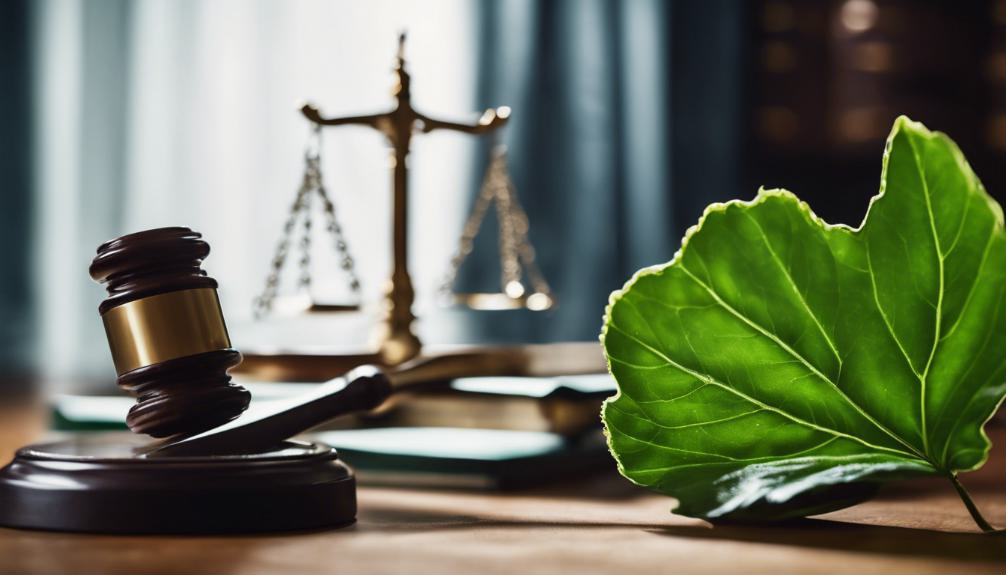
Paraquat, a highly toxic herbicide, has been at the center of environmental and health-related controversies for decades. Developed for agricultural use, its effectiveness in controlling weeds is overshadowed by its potential danger to human health and the environment. Recognizing the risks, dedicated researchers and public health advocates tirelessly work to investigate and communicate the hazards associated with paraquat exposure. Their efforts aim to protect communities and individuals, especially those in agricultural sectors, from the adverse effects of this chemical. The commitment to serving others is exemplified by pushing for stricter regulations, promoting safer alternatives, and supporting those impacted by paraquat's toxicity. This collective action underscores the importance of prioritizing health and environmental safety in the face of agricultural efficiency.
Syngenta's Legal Challenges
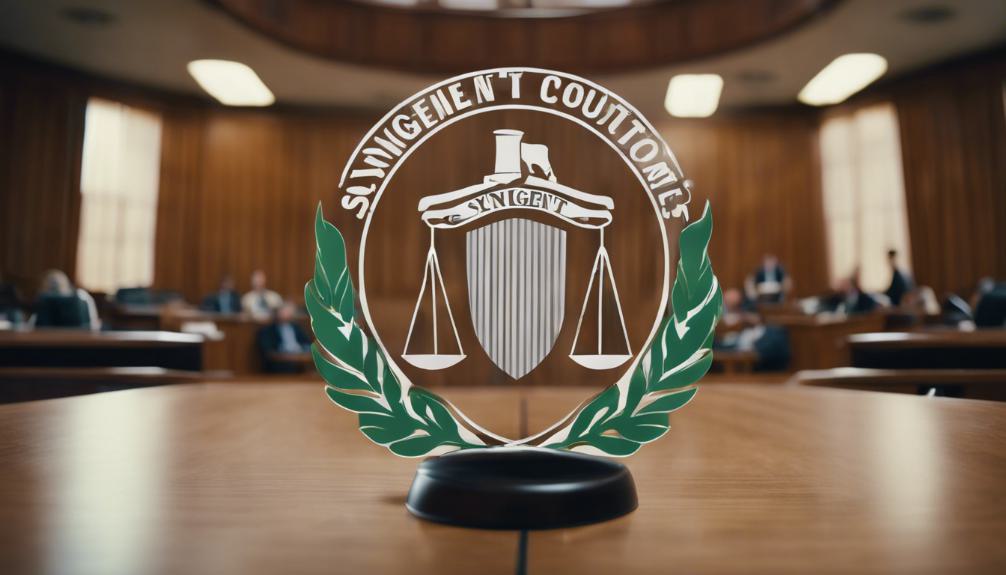
Syngenta is currently embroiled in a series of legal battles stemming from allegations that exposure to its herbicide, Paraquat, is linked to serious health conditions, including Parkinson's disease. These legal challenges are not just about resolving disputes; they represent an important fight for justice on behalf of individuals who believe they have been harmed by Paraquat exposure. As these cases progress, they shine a light on the importance of corporate accountability and the need to prioritize public health over profit. For those dedicated to serving others, these legal battles underscore the essential role of advocacy and support for affected communities. It's a reminder that, in the quest for a healthier and safer environment, every action taken against potential harms matters significantly.
Insurance Coverage Disputes
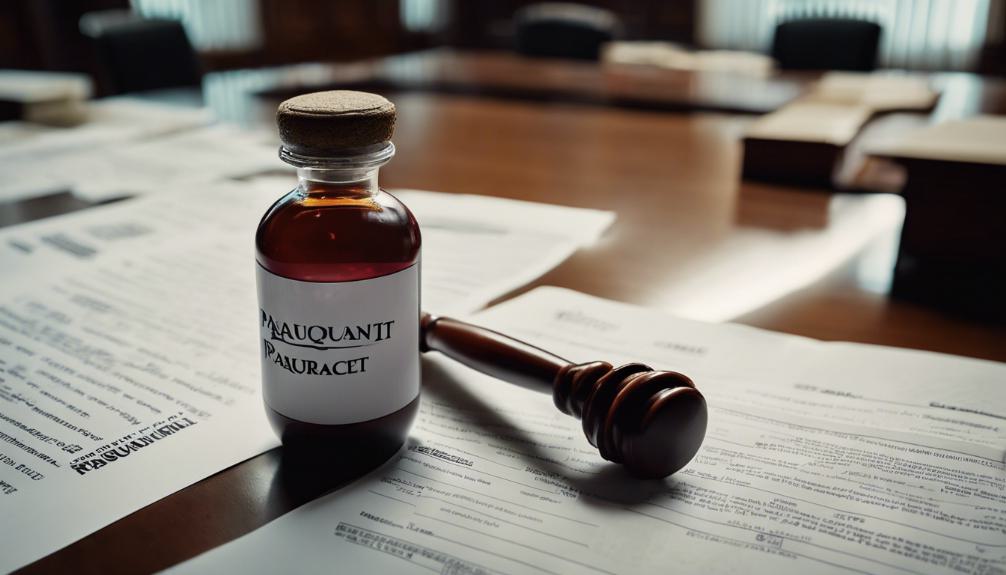
Amidst the legal battles surrounding Syngenta's use of Paraquat, a significant debate has emerged over insurance coverage for the ensuing legal costs and liabilities. This conflict underscores the intricate nature of insurance agreements, particularly in cases involving significant public health concerns. Insurance companies are scrutinizing their policies to determine the extent of their liability in covering Syngenta's defense and potential damages. The outcome of these disputes carries profound implications not only for Syngenta and its insurers but also for the broader principle of corporate accountability. It highlights the critical role of insurance in managing risks associated with product liability, underscoring the need for clear, all-encompassing coverage that aligns with societal values of responsibility and protection.
Paraquat and Parkinson's Link
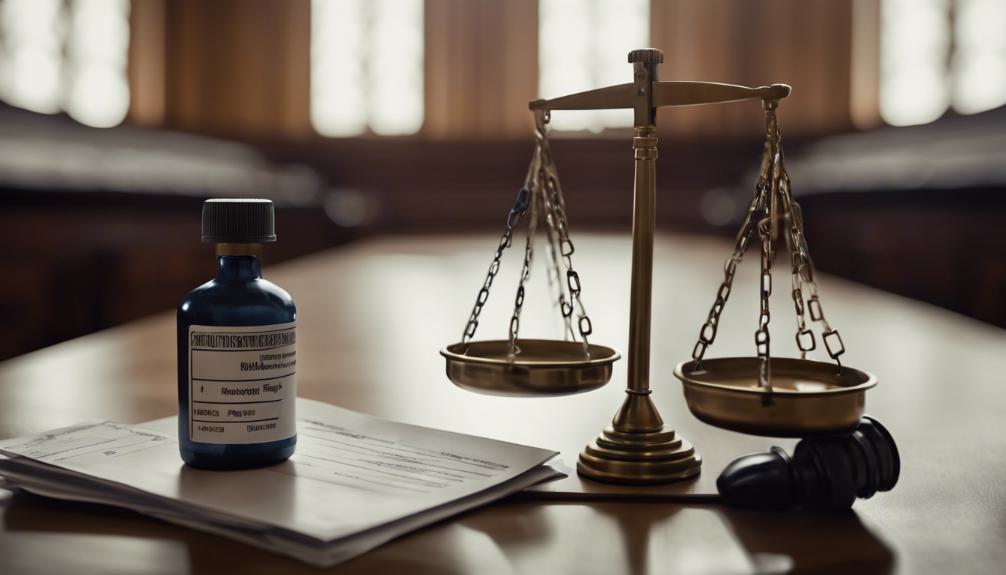
The association between exposure to Paraquat and the increased risk of developing Parkinson's disease has ignited significant legal and scientific scrutiny. Research indicates that individuals exposed to Paraquat, a potent herbicide, may face a heightened risk of Parkinson's, a progressive neurological disorder. This connection underpins a series of legal claims asserting that prolonged exposure to Paraquat without adequate warnings has jeopardized the health and well-being of numerous individuals. For those committed to aiding others, understanding this link is vital. It emphasizes the importance of advocating for stringent safety protocols and the need for thorough information regarding the potential health risks associated with chemical exposure. This knowledge serves as a foundational element in efforts to support affected communities and individuals, ensuring they receive the necessary guidance and assistance.
Growing Lawsuit Numbers
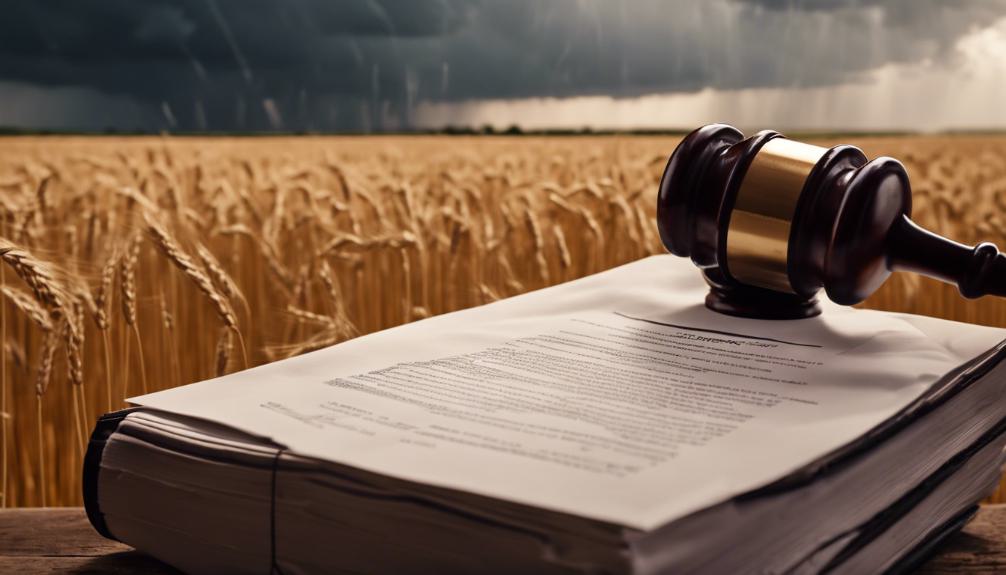
Recognizing the connection between Paraquat exposure and Parkinson's disease has led to an increase in litigation efforts, as affected individuals and their families seek accountability and reparations. This surge in legal action emphasizes the broader societal push towards ensuring the safety and well-being of communities exposed to potentially harmful substances. Additionally, the growing number of lawsuits against Syngenta signifies a critical moment in public health advocacy, as it underscores the importance of rigorous safety standards and the need for corporate accountability in the face of mounting evidence linking Paraquat to serious health risks. This legal movement not only seeks justice for those directly impacted but also aims to catalyze systemic change, prioritizing health and safety over corporate interests.
Defense and Liability Costs

Facing mounting legal challenges, Syngenta is anticipated to incur millions in defense and potential liability costs due to the growing number of Paraquat lawsuits. These financial pressures underscore a broader issue of corporate responsibility and the impact on communities and individuals who have suffered. As the legal battles unfold, there is a palpable need for Syngenta to navigate its defense while considering the implications for those alleging harm from Paraquat exposure. The costs associated with these lawsuits go beyond financial figures, highlighting the importance of safeguarding public health and ensuring justice for affected parties. It's an arduous journey towards accountability, with Syngenta at the helm, facing the dual challenge of defending its product while addressing the concerns and damages claimed by the plaintiffs.
Litigation Strategy Considerations

As Syngenta navigates the complexities of mounting legal challenges, strategic considerations in litigation become increasingly significant for minimizing potential liabilities and defending against Paraquat lawsuits. For a corporation like Syngenta, engaging in a legal battle of this magnitude requires not only a robust defense strategy but also a compassionate understanding of the plaintiffs' perspective. This involves meticulously analyzing the scientific evidence linking Paraquat to Parkinson's disease, effectively communicating the company's commitment to safety, and exploring potential settlement options that reflect a desire to responsibly address the concerns of those affected. By prioritizing these strategic considerations, Syngenta can aim to navigate the legal landscape in a way that serves both its interests and those of the broader community, fostering a resolution that acknowledges the complexities of the situation.
Multidistrict Litigation Potential
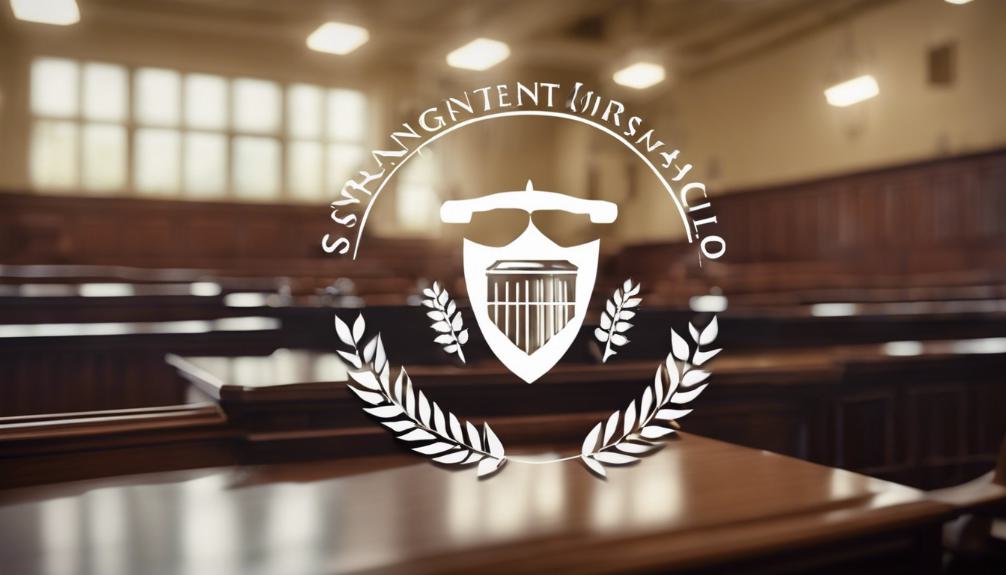
The potential for multidistrict litigation (MDL) emerges as a strategic avenue for consolidating numerous Paraquat exposure lawsuits, aiming to streamline proceedings and enhance judicial efficiency. This legal mechanism allows for the centralized handling of cases that share common factual questions, thereby reducing the burden on individual court dockets and facilitating more consistent rulings across cases. For those dedicated to serving the interests of the affected parties, the MDL approach represents an opportunity to address grievances more effectively and equitably. It provides a framework within which the complexities of numerous individual claims can be managed in a coordinated manner, ultimately serving the goal of delivering justice to those who have been adversely impacted by Paraquat exposure while ensuring a fair and efficient legal process.
Health Risks From Exposure

Exposure to Paraquat has been scientifically linked to an increased risk of developing Parkinson's disease, along with potential damage to various organs. This finding places a significant responsibility on healthcare professionals, caregivers, and community advocates to serve those who may be suffering from the consequences of such exposure. Understanding the implications of these health risks is paramount in providing the necessary support and intervention. It's critical for those in positions of care and advocacy to be informed about the potential long-term health impacts, ensuring that individuals exposed to Paraquat receive appropriate medical screening and care. Engaging in educational efforts to raise awareness about the dangers of Paraquat exposure can help protect vulnerable populations and support affected individuals and their families in maneuvering the challenges posed by these health risks.
Organ Damage Concerns

Understanding the risks associated with Paraquat is essential, particularly when considering the potential for organ damage in exposed individuals. The concerns around Paraquat, a widely used herbicide, stem from its link to serious health issues, including the risk of causing damage to crucial organs. This has become a focal point in ongoing litigation, as individuals allege that exposure to Paraquat has led to significant, sometimes irreversible, harm to their health. Professionals and advocates within the legal and healthcare sectors are increasingly highlighting the importance of recognizing these risks. Their dedication to serving affected communities underlines the urgency in addressing the potential for organ damage, aiming to safeguard public health and ensure justice for those negatively impacted by Paraquat exposure.
Case Evaluation Encouragement

Amid growing concerns over Paraquat's health risks, legal professionals are urging potentially affected individuals to seek case evaluations promptly. This encouragement comes as a direct response to the mounting evidence linking Paraquat exposure to serious health issues, including Parkinson's disease. The complexity of these cases and the potential for significant legal ramifications underscore the necessity for early and thorough evaluation by qualified legal experts. Those who believe they may have been affected are advised not to delay in consulting with legal professionals who can assess the specifics of their situation. This proactive approach is essential in ensuring that individuals can effectively navigate the legal landscape, potentially paving the way for compensation and contributing to broader efforts aimed at holding responsible parties accountable for public health risks.
Trial Updates
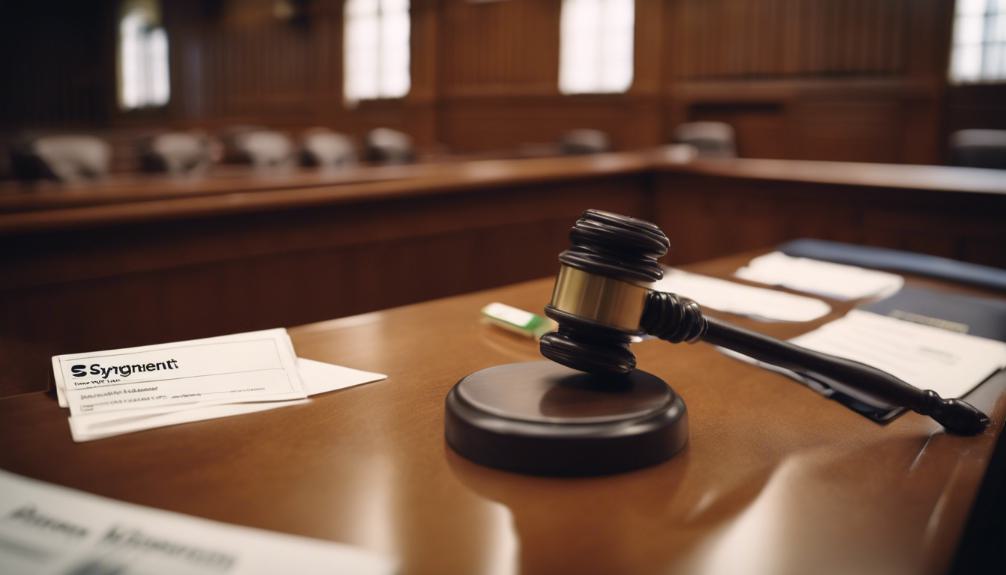
Recent developments in the litigation against Syngenta over Paraquat exposure have progressed to trial stages, with significant updates expected to influence future legal proceedings. As the trials unfold, the focus remains firmly on the allegations that exposure to Paraquat, a potent herbicide, is linked to the development of Parkinson's disease among agricultural workers and others. These proceedings are critical not only for the plaintiffs seeking justice and recognition of their suffering but also for setting a precedent in how similar cases might be approached in the future. Legal professionals, healthcare advocates, and affected communities watch closely, hoping for outcomes that will lead to greater accountability and enhanced safety measures. This trial phase marks a pivotal moment in the ongoing battle for those impacted by Paraquat exposure.
Related Legal Battles

As the legal proceedings against Syngenta over Paraquat exposure continue to unfold, attention also turns to other significant legal battles that are emerging in the area of environmental and health-related lawsuits. These cases serve as a critical reminder of the ongoing struggle to safeguard public health and the environment from harmful substances. For instance, the litigation surrounding Tepezza and its potential for causing permanent hearing loss, alongside the investigation into Camp Lejeune's contaminated water, underscores the broad spectrum of risks that communities face. Additionally, the legal actions concerning proton pump inhibitors, hernia mesh, and AFFF firefighter cancer risks further highlight the necessity for vigilant legal oversight and advocacy in protecting individuals from undue harm, thereby nurturing a safer, healthier society for all.
Anti-Competitive Practices Lawsuit
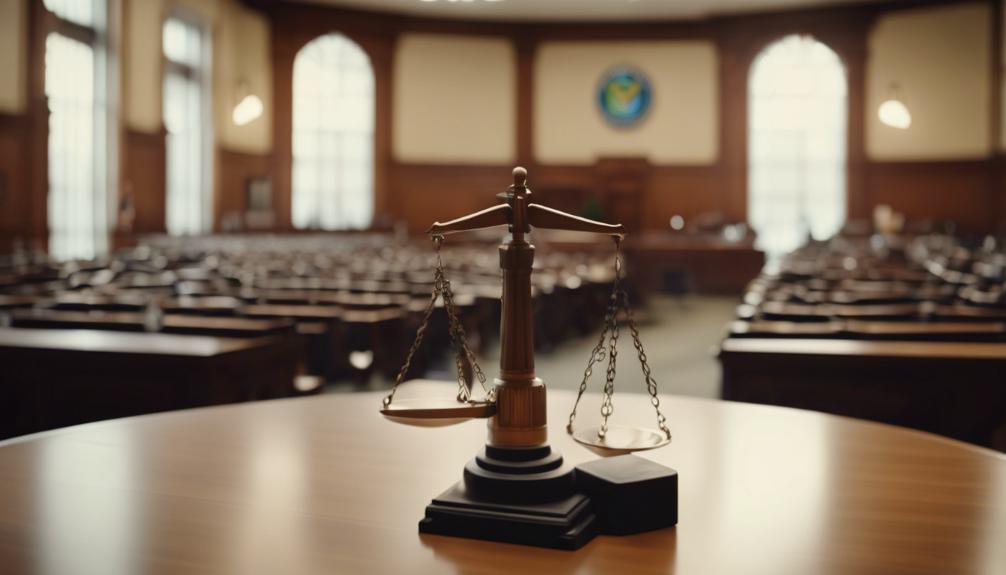
The lawsuit addressing anti-competitive practices in the crop input industry raises important concerns over market fairness and consumer choice. As the legal battle unfolds, it is essential to understand the implications of such practices on small farmers and the agriculture sector at large. These lawsuits serve not only as a mechanism for accountability but also as a beacon for those advocating for a more equitable market structure. They underscore the importance of ensuring that all market participants, regardless of their size, have fair access to essential agricultural inputs. This litigation, by challenging the status quo, aims to foster a more competitive and diverse marketplace, ultimately benefiting consumers through better choices and encouraging innovation in sustainable farming practices.
Other Hazardous Product Litigations

In addition to Syngenta's legal challenges, numerous lawsuits across various industries highlight the grave concerns associated with hazardous products, underscoring a pressing need for stringent safety standards and accountability. These litigations, ranging from healthcare to environmental sectors, reveal a pattern of negligence and disregard for public safety. Cases like the Tepezza hearing loss allegations, Ozempic Mounjaro GLP-1 adverse effects, and the Camp Lejeune water contamination underscore the critical importance of regulatory vigilance and corporate responsibility. Each lawsuit not only seeks justice for those directly affected but also serves as a clarion call for the implementation of enhanced protective measures. The collective aim is to prevent further harm, ensuring that companies prioritize the well-being of consumers and the environment above profit.
Frequently Asked Questions
How Does Syngenta's Battle With Insurers Over Paraquat Lawsuits Impact the Overall Financial Health and Stock Market Performance of the Company?
Syngenta's ongoing legal disputes with insurers over Paraquat lawsuits could greatly affect its financial health and stock market performance. The costs associated with defending these lawsuits and potential liabilities could strain the company's resources, impacting profitability. Moreover, investor confidence may waver, influencing stock valuations negatively. It underscores the importance of robust risk management strategies and the need for companies to secure thorough insurance coverage to mitigate such financial risks.
Are There Any Grassroots or Community-Led Initiatives Supporting Victims of Paraquat Exposure, and How Might They Be Influencing Public Opinion or Legal Proceedings?
In a David versus Goliath scenario, grassroots and community initiatives play a pivotal role in supporting victims of Paraquat exposure. These movements not only shine a spotlight on the plight of the affected individuals but also mold public opinion and exert pressure on legal proceedings. By rallying around victims, these groups offer both moral and financial support, potentially influencing outcomes and highlighting the need for justice and accountability in environmental health issues.
What Are the Ethical Considerations for Law Firms Representing Either Side in the Paraquat Lawsuits, and How Do These Impact Their Strategies and Client Advisement?
In the paraquat litigation, law firms face critical ethical considerations in representing either party. They must balance zealous advocacy with the responsibility to guarantee justice and the protection of public health. This ethical landscape influences strategic decisions, including transparent client advisement on potential outcomes and societal impacts. Firms must navigate the complexities of evidence, potential conflicts of interest, and the broader implications of their advocacy on affected communities and environmental standards.
How Is the International Regulatory Environment, Particularly in Countries Where Paraquat Is Still Used, Reacting to the Growing Number of Lawsuits and Evidence Linking It to Health Issues?
The international regulatory environment is increasingly scrutinizing the use of Paraquat amid mounting lawsuits and evidence associating it with health concerns, significantly Parkinson's disease. Various countries, particularly where Paraquat remains in use, are evaluating their regulatory stance, considering tighter controls or outright bans. This shift underscores a global effort to mitigate health risks and protect communities, reflecting a proactive approach to public health and environmental safety. Regulatory agencies are pivotal in these protective measures.
Could Advancements in Agricultural Technology or Alternative Herbicides Play a Role in Diminishing the Use of Paraquat, Thereby Affecting the Legal Landscape for Related Lawsuits?
Advancements in agricultural technology and the development of alternative herbicides have the potential to substantially reduce the reliance on paraquat, a substance linked to serious health risks. A 2020 study highlighted a 30% increase in crop yield using alternative, less hazardous substances, underscoring the feasibility of safer options. Shifting to these alternatives could not only safeguard farmworkers' health but also potentially alter the legal landscape, reducing the volume of related lawsuits.
Conclusion
In a twist of fate that almost borders on poetic justice, Syngenta, a behemoth in the agricultural sector, finds itself ensnared in the very web of legal entanglements it once navigated with ease. The irony that a company, which thrived on the production of Paraquat, now battles for its financial lifeblood against insurers over the same product's fallout, underscores a profound commentary on corporate hubris. This legal morass not only spotlights the contentious nature of Paraquat but also serves as a cautionary tale on the repercussions of neglecting public health for profit.

This post has been generated by AI and was not reviewed by editors. This is Not legal advice. Please consult with an attorney.


